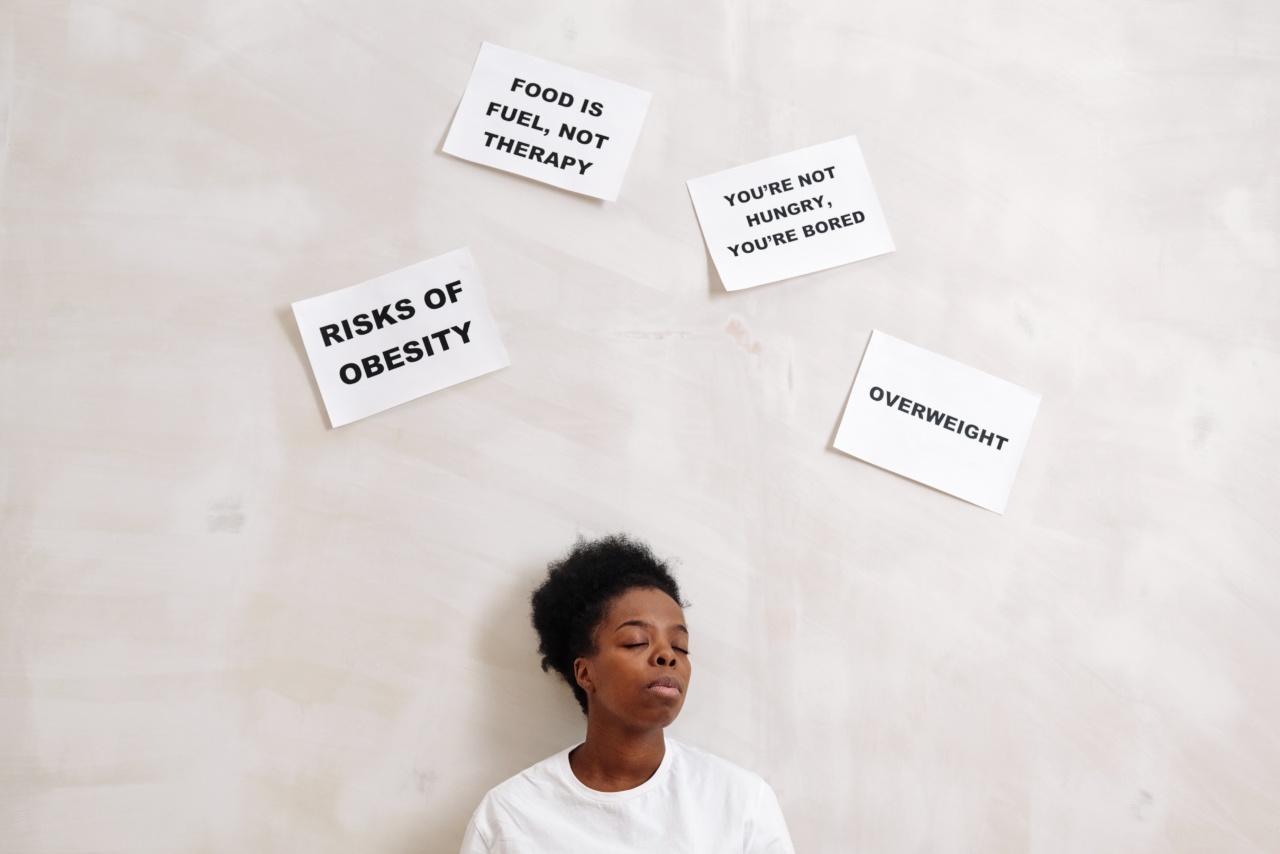Depression is a serious mental health condition that affects millions of people around the world. It is characterized by feelings of sadness, hopelessness, and despair, and can have a significant impact on a person’s quality of life.
While the signs and symptoms of depression can vary from person to person, there are some common physical and emotional reactions that can indicate the presence of this condition.
Physical Signs of Depression
Depression is not just a psychological condition – it can have a significant impact on our bodies as well. Some of the physical signs of depression include:.
1. Changes in Appetite
Many people with depression experience changes in their appetite, which can lead to weight gain or weight loss. Some people may find that they have no desire to eat at all, while others may turn to food as a source of comfort.
2. Fatigue and Low Energy
Depression can leave people feeling drained and exhausted, even if they have not exerted themselves physically. This can make it difficult to perform everyday tasks and can lead to feelings of frustration or hopelessness.
3. Sleep Disturbances
People with depression may experience difficulty falling or staying asleep, or they may sleep excessively. Insomnia and hypersomnia are both common symptoms of depression.
4. Unexplained Aches and Pains
Depression can cause physical pain and discomfort, even if there is no obvious physical cause. Some people with depression may experience headaches, muscle aches, and other general aches and pains.
Emotional Signs of Depression
In addition to physical symptoms, depression can also have a significant impact on our emotions. Some of the emotional signs of depression include:.
1. Persistent Sadness or Hopelessness
Feelings of sadness and hopelessness that persist for several days or longer can be a sign of depression. People with depression may feel as though they are in a dark pit with no way out.
2. Loss of Interest in Activities
Many people with depression lose interest in activities they once enjoyed, such as hobbies, sports, or socializing with friends and family. This can lead to feelings of isolation and loneliness.
3. Irritability and Agitation
Depression can cause people to feel irritable or agitated, even over small things. This can lead to conflicts with loved ones, coworkers, and even strangers.
4. Feelings of Guilt or Worthlessness
People with depression may feel an overwhelming sense of guilt or worthlessness, even if there is no logical reason for these feelings. This can lead to a negative self-image and can make it difficult to seek help for the condition.
Seeking Help for Depression
If you or someone you know is experiencing the signs and symptoms of depression, it is important to seek help as soon as possible.
Depression is a treatable condition, and with the right support and interventions, people can recover and lead fulfilling lives.
Some ways to seek help for depression include:.
- Talking to a mental health professional, such as a therapist or counselor
- Speaking with a primary care physician or other medical provider
- Joining a support group for people with depression
- Engaging in self-help strategies, such as exercise, meditation, and self-care practices
Conclusion
Depression is a serious condition that can have a significant impact on a person’s life. By recognizing the signs and symptoms of the condition, we can take steps to seek help and support when we need it.
Whether through therapy, medication, support groups, or other interventions, there are ways to manage and recover from depression. With the right help and support, people can achieve better mental health and lead fulfilling lives.






























